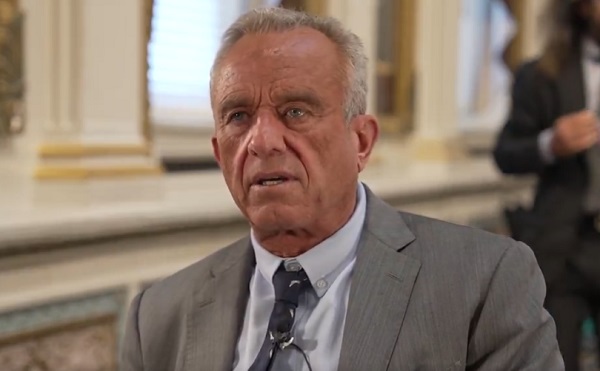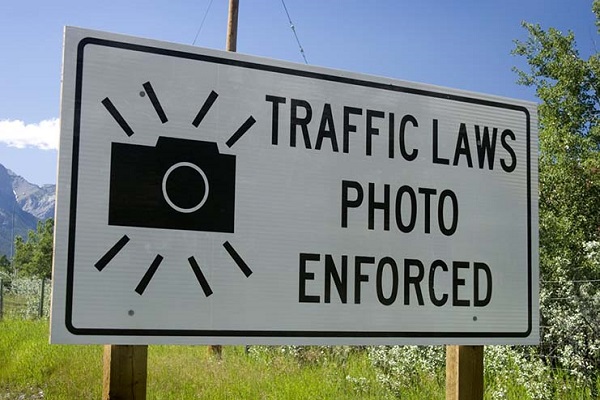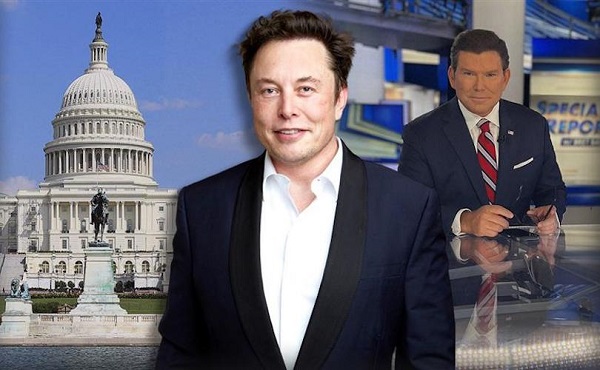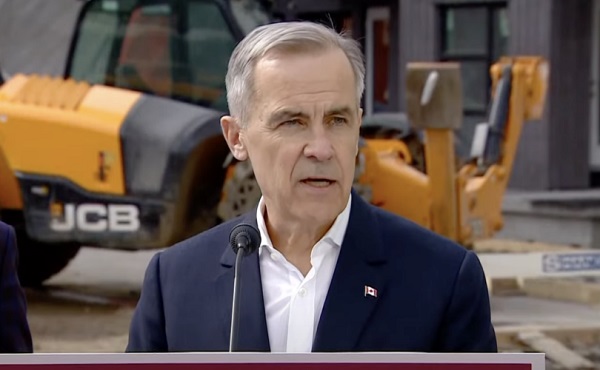Opinion
What We Don’t Know About The Presidents We Elect

The Navy proudly draws its newest, most devastating fighter, the McDonnell F4H Phantom II past the applauding President of the United States John F. Kennedy as he reviews the Inaugural Parade, in Washington, DC, on January 20, 1961. / Photo by Bettmann via Getty Images.
Notes on the occasion of an inauguration
Like most Americans, I applaud the recent ceasefire agreement between Israel and Hamas that was approved today by the Israeli security cabinet, and I was glad to learn that the incoming Trump administration was directly involved in support of the Biden team in the most positive way: by telling Israeli Prime Minister Benjamin Netanyahu that a deal had to be made.
I did not like much of the Biden administration’s foreign policy, and I worried a lot, as a journalist and a citizen, about what Donald Trump’s new team would do. But I learned long ago that you cannot tell a presidency by its cover.
In late 1967 I was a freelance journalist in Washington and totally hostile to the ongoing American war in South Vietnam. I was persuaded to join the then nascent staff of the only Democratic member of the Senate, Eugene McCarthy of Minnesota, who was willing to take on President Lyndon B. Johnson, a fellow Democrat, then running for second term, who had escalated the war he inherited with mass bombing campaigns. I would be the press secretary and, while traveling with the candidate, draft daily policy statements and work on speeches.
McCarthy, a member of the Foreign Relations Committee, was far from a shining star. But, as a devout Catholic, he saw the Vietnam War in moral terms and was troubled by the Pentagon’s decision to lower the minimal acceptable scores on the Army’s standard intelligence tests in an effort to enlist more young men from the ghettos and barrios of America, where educational opportunities were fewer, as they still are today. McCarthy publicly called such action “changing the color of the corpses.” He quickly became my man.
A few weeks into the job, I was traveling with McCarthy on a fundraising tour in California and found myself outside a Hollywood mansion where McCarthy was making a money pitch to the rich and famous. Such events were always boring, and I found myself hanging around outside the mansion with a few of the local and national reporters tagging along. One of those outside was Peter Lisagor, then the brilliant Washington bureau chief for the Chicago Daily News. He had joined our antiwar campaign out of curiosity, I suspected, since the chances of forcing Johnson to change his aggressive Vietnam policy seemed to be nil amid relentless US bombings. As I later learned, Lisagor had been one of the few journalists invited to fly in 1966 on Air Force One with the president on one of his early trips to Vietnam. The flight was kept secret until Johnson arrived in Saigon.
Lisagor told me a story—most likely he meant to cheer me up, since we were polling at 5 percent at the time—about time he had spent in 1961 at Harvard and the Massachusetts Institute of Technology. I do not recall whether he was on a reporting project there—he had been a Nieman fellow at Harvard in 1948—but there he was on inauguration day of 1961, while in Washington the glamorous John F. Kennedy was being sworn in as president by Chief Justice Earl Warren.
As Lisagor told it, he was watching the swearing in with a bunch of MIT students and faculty members at a cafeteria that had a TV, and just as Warren pronounced JFK president a young faculty member named Noam Chomsky stunned the small crowd by saying, of Kennedy and his Harvard ties: “And now the terror begins.”
Chomsky’s point, as would become clear in his later writings, was that Kennedy’s notion of American exceptionalism was not going to work in Vietnam. As it did not. And Lisagor’s point to me, as I came to understand it over the years, was that one cannot always tell which president will become a peacemaker and which will become a destroyer. Lisagor died, far too young at age 61, in 1976.
Joe Biden talked peace—and withdrew US forces from Afghanistan—but helped put Europe, and America, into a war against Russia in Ukraine and supported Benjamin Netanyahu’s war against Hamas and, ultimately, against the Palestinian people in Gaza.
Donald Trump is always talking tough but one of his first major foreign moves after winning the presidency was to order his senior aides to work with Biden’s foreign policy people to perhaps end a war in Gaza and save untold thousands of lives. And I hear serious talks are underway to bring an end to the Ukraine War.
One never knows.
Subscribe to Seymour Hersh.
For the full experience, upgrade your subscription.
Business
Labor Department cancels “America Last” spending spree spanning five continents

 MxM News
MxM News
Quick Hit:
The U.S. Department of Labor has scrapped nearly $600 million in foreign aid grants, including $10 million aimed at promoting “gender equity in the Mexican workplace.”
Key Details:
-
Labor Secretary Lori Chavez-DeRemer and Deputy Secretary Keith Sonderling were credited with delivering $237 million in savings through the latest round of canceled programs.
-
Among the defunded initiatives: $12.2 million for “worker empowerment” efforts in South America, $6.25 million to improve labor rights in Central American agriculture, and $5 million to promote women’s workplace participation in West Africa.
-
The Department of Government Efficiency described the cuts as necessary to realign U.S. labor policy with national interests and applauded the elimination of all 69 international grants managed by the Bureau of International Labor Affairs.
Diving Deeper:
The U.S. Department of Labor on Wednesday canceled $577 million in foreign aid grants, including a controversial $10 million program aimed at promoting “gender equity in the Mexican workplace,” according to documents obtained by The Washington Post. The sweeping decision to terminate all 69 active international labor grants comes as part of a larger restructuring effort led by John Clark, a senior DOL official appointed during the Trump administration.
Clark directed the department’s Bureau of International Labor Affairs (ILAB) to shut down its entire grant portfolio, citing a “lack of alignment with agency priorities and national interest.” The memo explaining the cancellations was first reported by The Washington Post and highlights a broader shift in federal labor policy toward domestic-focused initiatives.
Among the eliminated grants were high-dollar projects that had drawn criticism from watchdog groups for years. These included $12.2 million designated for “worker empowerment in South America,” $6.25 million targeting labor conditions in Honduras, Guatemala, and El Salvador, and $5 million to elevate women’s workplace participation in West Africa. Other defunded programs involved $4.3 million to support foreign migrant workers in Malaysia, $3 million to improve social protections for internal migrants in Bangladesh, and $3 million to promote “safe and inclusive work environments” in Lesotho.
The Department of Government Efficiency, also involved in the review, labeled the grants as “America Last” initiatives, and pointed to the lack of measurable outcomes and limited benefits to American workers. The agency commended the leadership of Labor Secretary Lori Chavez-DeRemer and Deputy Secretary Keith Sonderling for securing $237 million in savings during this round alone.
The cuts mark the second major cost-saving move under Chavez-DeRemer’s leadership in as many weeks. Just days earlier, she canceled an additional $33 million in funding, including a $1.5 million grant focused on increasing transparency in Uzbekistan’s cotton sector. Chavez-DeRemer, a former Republican congresswoman from Oregon, was confirmed as Labor Secretary on March 11th by a bipartisan Senate vote of 67-32.
Health
RFK Jr. says ‘everything is going to change’ with CDC vaccine policy in Michael Knowles interview

From LifeSiteNews
New Health and Human Services Director Robert F. Kennedy Jr. said the CDC’s own reporting system ‘captures fewer than 1% of vaccine injuries. It’s worthless, and everybody agrees it’s worthless.’
When Michael Knowles asked new Health and Human Services (HHS) Secretary Robert F. Kennedy Jr. if anything will change regarding the public’s justifiable concern with the growth of vaccines, Kennedy quickly shot back, “Everything is going to change.”
Kennedy pointed to the Centers for Disease Control’s current flawed VAERS (Vaccine Adverse Event Reporting System) online mechanism.
By way of example, he said, “None of the vaccines that are given during the first six months of life have ever been tested for autism. The only one was the DTP vaccine. And that one study that was done, according to the Institute of Medicine, the National Academy of Sciences, found that there was a link.”
But “They threw out that study because it was based upon CDC’s surveillance system, VAERS, and they said that system is no good.”
“That begs the question, why doesn’t CDC have a functional surveillance system?” he asked. “We’re gonna make sure they do.”
“They don’t do pre-licensing safety testing for vaccines” he continued. “They’re the only product that’s exempt. So what they say is, if there are injuries, we’ll capture them afterward.”
However, “they have a system that doesn’t capture them. In fact, CDC’s own study of its own system said it captures fewer than 1% of vaccine injuries,” Kennedy said. “It’s worthless, and everybody agrees it’s worthless.”
“Why have we gone for 39 years and nobody’s fixed it?” he wondered, promising, “We’re gonna fix it.”
“We have DOGE (which) knows how to manage data. We’re going to be able to get into these databases and give answers to the American public,” Kennedy predicted.
“We’re going to have gold standard science, we’re going to follow the science, we’re going to publish all of our datasets, which CDC has never done,” he said.
“We’re going to do replication of all of our studies, which CDC has never done. We’re going to publish our peer review, which CDC has never done,” Kennedy vowed. “So people are going to have real answers for the first time.”
The new HHS head also discussed more broadly his mission after taking over the department’s helm, the mess created by the Biden administration, his job’s challenges, and recent developments thanks to DOGE.
“HHS is a $1.9 trillion agency. It’s the biggest agency in the government. And during the Biden administration, President Biden increased its budget by 38% and increased the workforce by 17%.”
“And by every metric by which we measure public health, health accelerated its decline.”
“When I came to HHS, what I found was a sprawling bureaucracy,” with functional duplication of departments, rampant redundancy and overstaffing, with various sub-agencies often acting in a territorial, self-protecting manner rather than a synergistic one.
“Perverse incentives” sometimes drive employee’s work,” he noted.
Despite his short tenure at HHS, with the help of DOGE, Kennedy has already released 20,000 “bureaucrats” from the department’s ranks.
“We’re going from 82,000 personnel to 62,000,” said Kennedy, carefully pointing out, “We’re keeping the scientists and frontline providers.”
Kennedy said that it has been really hard to fight against the problems at HHS and NIH over the last 40 years from “the outside.”
But “now I’m on the inside,” he declared. “This is the purpose of my life. It’s what I’m going to do over the next four years.”
He concluded:
President Trump promised to return the American dream to Americans.
A healthy person has a thousand dreams. A sick person only has one.
-

 Business1 day ago
Business1 day agoFeds Spent Roughly $1 Billion To Conduct Survey That Could’ve Been Done For $10,000, Musk Says
-

 2025 Federal Election2 days ago
2025 Federal Election2 days agoChinese Gangs Dominate Canada: Why Will Voters Give Liberals Another Term?
-

 Alberta16 hours ago
Alberta16 hours agoPhoto radar to be restricted to School, Playground, and Construction Zones as Alberta ends photo radar era
-

 Health19 hours ago
Health19 hours agoRFK Jr. Drops Stunning Vaccine Announcement
-

 Alberta10 hours ago
Alberta10 hours agoProvince announces plans for nine new ‘urgent care centres’ – redirecting 200,000 hospital visits
-

 Business8 hours ago
Business8 hours agoElon Musk, DOGE officials reveal ‘astonishing’ government waste, fraud in viral interview
-

 Energy2 days ago
Energy2 days agoEnergy, climate, and economics — A smarter path for Canada
-

 2025 Federal Election2 days ago
2025 Federal Election2 days agoFool Me Once: The Cost of Carney–Trudeau Tax Games







